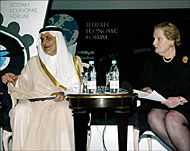London blast attempt suspect charged
One month to the day after the London bombings that claimed 56 lives, police have charged their first key suspect in a failed attempt two weeks later to repeat the attacks.

Yassin Hassan Omar, 24, a Somali living in north London, will appear before a judge in a high-security prison charged with attempted murder, conspiracy and possession of explosives, the Metropolitan Police said in a statement.
He had been identified as a prime suspect in an attempt to bomb the Underground railway at Warren Street in central London on 21 July as three others tried to do the same elsewhere in the capital.
Omar was the first to be charged with a direct role in the bombing attempt.
Six others have been charged with the lesser crime of failing to reveal information to police, including three men in their early 20s who appeared in court on Saturday.
Several arrests
They were remanded in custody until 11 August on suspicion of withholding information that may be of help in prosecuting Hamdi Issac, another of the four would-be 21 July attackers who now is in custody in Rome awaiting extradition.
 |
|
London police will beef up the |
A total of 39 arrests have been carried out in Britain in connection with the London attacks, with 16 still in custody in Britain plus Issac in the Italian capital.
Londoners acted with resilience when the 7 July bombs struck three Underground trains and a double-decker bus.
Prime Minister Tony Blair, who was in Scotland hosting a summit of the Group of Eight leading industrialised nations, promptly suspected the hand of Osama bin Laden’s al-Qaida network.
Londoners were more badly shaken, however, by the 21 July would-be blasts, which left the impression that 7 July was the start of a sustained series of attacks.
Zambia deportation
A British man arrested in Zambia two weeks ago has been deported to his home country, where he is reportedly suspected of being the mastermind behind last month’s attacks.
 |
|
The 7 July blasts killed 56 people, |
“(Haroon) Aswat was deported to his home country this morning (Sunday),” Zambian Home Affairs Permanent Secretary Peter Mumba told AFP.
Aswat “left at 9:00 am (0700GMT) from Lusaka international airport to Britain in a chartered plane,” a source at the airport said.
Aswat, 31, has been named in US and British media reports as the alleged mastermind behind the 7 July blasts, but British police have not confirmed that he is wanted in connection with the attacks.
Zambian President Levy Mwanawasa announced on Wednesday that Aswat would be sent to Britain.
“We had discussions with the governments of the US and Britain and finally agreed that Mr Aswat should be deported to his country which is Britain,” he told reporters.
“He was being held for violating immigration regulations. After investigations it was discovered that he is allegedly linked to terrorism,” Mwanawasa said.
Not extradited
Aswat was deported – and not extradited – to Britain because he was officially being held for breaching immigration laws.
|
“After investigations it was discovered that he is allegedly linked to terrorism” Levy Mwanawasa, |
Aswat, who entered Zambia on 6 July after spending time in South Africa and Botswana, had been on a watch list of Western intelligence agencies who tipped off Zambian authorities. He was arrested in Lusaka on 20 July.
US authorities have reportedly sought to question Aswat over alleged attempts to set up a terrorist training camp in Bly, Oregon.
Saudi intelligence
Police say they had no warning of the 7 July attacks, but two British newspapers reported on Sunday that Saudi officials had alerted Britain several weeks before the 7 July that an attack was in the works.
 |
|
Prince Turki al-Faisal (L) says |
The Observer quoted a security official in the Saudi capital, Riyadh, as saying that information was passed to MI5 and MI6, Britain’s domestic and foreign intelligence agencies.
The Sunday Telegraph quoted the Saudi ambassador to Britain, Prince Turki al-Faisal, as saying: “There were reports passed on to your authorities several months ago (in April-May) in general terms of a heightened expectancy of attacks on London.”
Turki, a former head of Saudi intelligence, said the information came from terror suspects who had undergone questioning in Saudi Arabia.
Security boosted
In other developments, the Metropolitan Police intends to beef up the number of officers trained and licensed to carry firearms in the wake of the London bombings, its commissioner Sir Ian Blair was quoted as saying.
“We do need more firearms officers and I expect to see an increase in the low hundreds as a minimum,” Blair told The Mail on Sunday. “We must have the capacity to stop a suicide bomber before he has a chance to detonate.”
With more than 30,000 officers, the Metropolitan Police is one of the world’s biggest police forces, but only 2000 officers are “authorised firearms users”, The Mail on Sunday said. The others are unarmed.